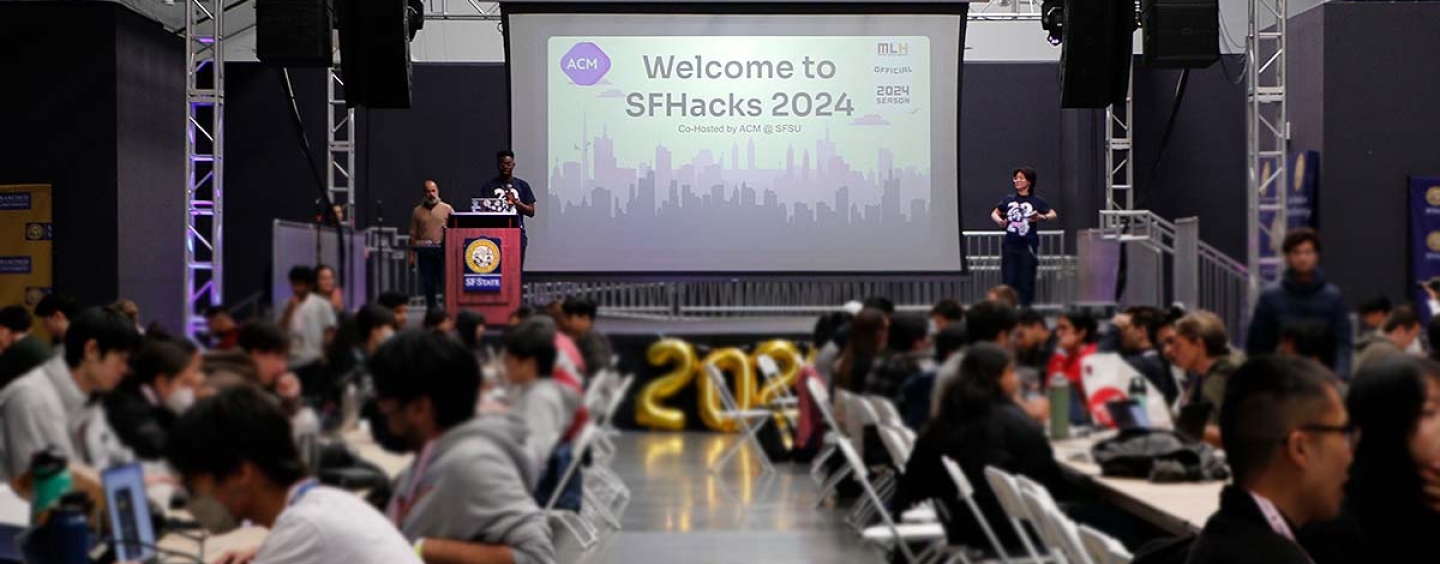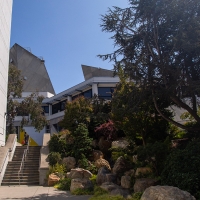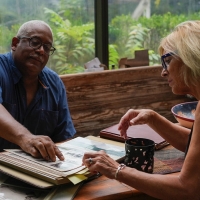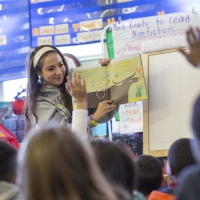In-person hackathon makes triumphant return to campus

SF Hacks was a nonstop weekend filled with ‘hacking,’ friendly competition, networking, karaoke and Bob Ross
What is a hackathon? The word might conjure an image of people with their heads down furiously clacking away at a computer in silence. But that is not what happened at this year’s student-run SF Hacks event — especially now that the annual hackathon is back in person.
After being virtual for the past few years, SF Hacks returned to San Francisco State University’s Annex 1 April 5 – 7 for the first time since 2019. There were more than 200 participants, with students coming from 33 different schools and six states.
During hackathons — sometimes also called codefests — participants design projects to solve various problems. The hard part: They only have 72 hours to work on the project, write the code and troubleshoot before presenting to judges. But the competition is just one part of SF Hacks.
“Most of the time you’re staying up because you have to get homework done. But this time we’re staying up [because this hackathon] is like a huge sleepover,” said SF Hacks Co-President Arianna Yuan, a Computer Science senior.
The multi-day event is really a community celebration packed with networking, games and activities like karaoke, a Bob Ross painting workshop and a K-Pop club event. Beginners are more than welcome.
“With online hackathons, there’s a lot less room for randomly meeting a teammate and going out to do painting. [You can’t] see a bug on someone’s screen and then run across the room to communicate that to someone else,” said SF Hacks Co-President Odera Nwosu, explaining the spirit that was lost on Zoom.
This year’s challenge theme was city life. Nwosu, a Computer Science sophomore, points out it’s a very San Francisco-driven theme. Projects could address transportation, food, housing and other topics affecting students. There were also several tracks like artificial intelligence and sustainability that were set by SF Hacks and various sponsors.
“Our tracks are essentially specializations that participants can choose to try to refine and push their projects,” said SF Hacks Vice President Marco Garcia, a Computer Science sophomore. While participants might get points or prizes for following the theme or tracks, it’s not essential. The organizers knew participants have a wide array of potential projects.
Some of the project submissions that caused a stir tackled city litter and emergency response. Clean ASF gamified the act of picking up litter — a task that can often feel futile in a city like San Francisco — to encourage more folks to engage. Taking a different approach, CleanMars used a 3D-printed robot that could discover, collect and classify trash. Another popular project was SOS Hub, an AI-powered emergency response platform that can analyzed user-submitted photographs of a scene to identify and recommend the appropriate first responders. Some of the winning projects — spread across different categories — are publicly shared in a Devpost gallery.
The student organizers recruited more than 30 sponsors ranging from SF State’s colleges, departments and student organizations to industry giants like OpenAI, CISCO and Kaiser Permanente. Many sponsors participated in the live event.
“Hackers will make some awesome, insightful and creative projects. It’s a great way for [students] to show off what they can do to people who might be noticing,” said SF Hacks Marketing Director Ria Thakker, Computer Science sophomore.
The event was organized by over 20 SF State students. Nwosu says they received a lot of support from alumni, emphasizing that community is at the core of SF Hacks. While some of this year’s student organizers have attended hackathons, many were new to hackathons or it was their first time with SF Hacks.
“I’ve met incredible people and I love the team,” said Yuan, one of the few long-term SF Hack organizers. She originally joined after participating in hackathons in high school. Now she’s about to graduate college and gets sentimental thinking about leaving SF Hacks. “It is kind of sad to see this little baby go, but I trust that it’s in good hands. It’s just very lovely to have an incredible team that you can work with and trust and get stuff done. It’s just a gigantic project.”
Learn more about SF Hacks and SF State’s Computer Science Department.
Tags



